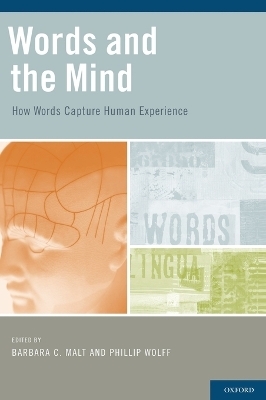
Words and the Mind
Oxford University Press Inc (Verlag)
978-0-19-531112-9 (ISBN)
The study of word meanings promises important insights into the nature of the human mind by revealing what people find to be most cognitively significant in their experience. However, as we learn more about the semantics of various languages, we are faced with an interesting problem. Different languages seem to be telling us different stories about the mind. For example, important distinctions made in one language are not necessarily made in others. What are we to make of these cross-linguistic differences? How do they arise? Are they created by purely linguistic processes operating over the course of language evolution? Or do they reflect fundamental differences in thought? In this sea of differences, are there any semantic universals? Which categories might be given by the genes, which by culture, and which by language? And what might the cross-linguistic similarities and differences contribute to our understanding of conceptual and linguistic development? The kinds of mapping principles, structures, and processes that link language and non-linguistic knowledge must accommodate not just one language but the rich diversity that has been uncovered.
The integration of knowledge and methodologies necessary for real progress in answering these questions has happened only recently, as experimental approaches have been applied to the cross-linguistic study of word meaning. In Words and the Mind, Barbara Malt and Phillip Wolff present evidence from the leading researchers who are carrying out this empirical work on topics as diverse as spatial relations, events, emotion terms, motion events, objects, body-part terms, causation, color categories, and relational categories. By bringing them together, Malt and Wolff highlight some of the most exciting cross-linguistic and cross-cultural work on the language-thought interface, from a broad array of fields including linguistics, anthropology, cognitive and developmental psychology, and cognitive neuropsychology. Their results provide some answers to these questions and new perspectives on the issues surrounding them.
Phil Wolff received his PhD degree from Northwestern University and is currently an assistant professor at Emory University. His research concerns the relationship between language and cognition, with particular interests in computational models of causal meaning and reasoning. Wolff is on the editorial board of the journal Cognitive Science. Barbara Malt received her Ph.D. from Stanford University with post-doctoral training at U.C. Berkeley and UMass, and she is currently Professor of Psychology at Lehigh University. Malt is interested in how people understand the world, how they talk about the world, and what the relation is between the two. She has served as associate editor for Journal of Experimental Psychology: Learning, Memory, and Cognition and as Chair of the Psychology Department at Lehigh.
I. The language-thought interface: An introduction
1. Reinventing the word
2. Lexicalization patterns and the world-to-words mapping
3. Words for parts of the body
4. Universals and variation in the lexicon of mental state concepts
5. Force creation and possible causers across languages
6. The language-specificity of conceptual structure:
Path, fictive motion, and time relations
7. Categories in mind and categories in language: Do
classifier categories influence conceptual structures?
8. Language and thought: Which side are you on, anyway?
9. Relatively speaking: An account of the relationship
between language and thought in the color domain
10. Worlds without words: Commensurability and
causality in language, culture and cognition
11. A world of relations: Relational words
12. Learning a language the way it is: Conventionality and semantic domains
13. Language structure, lexical meaning, and cognition: Whorf and Vygotsky revisited
14. How words capture visual experience: The perspective from cognitive neuroscience
| Erscheint lt. Verlag | 18.3.2010 |
|---|---|
| Zusatzinfo | 50 halftones, 50 line illus. |
| Verlagsort | New York |
| Sprache | englisch |
| Maße | 254 x 183 mm |
| Gewicht | 805 g |
| Themenwelt | Geisteswissenschaften ► Psychologie ► Allgemeine Psychologie |
| Geisteswissenschaften ► Psychologie ► Verhaltenstherapie | |
| Geisteswissenschaften ► Sprach- / Literaturwissenschaft ► Sprachwissenschaft | |
| ISBN-10 | 0-19-531112-4 / 0195311124 |
| ISBN-13 | 978-0-19-531112-9 / 9780195311129 |
| Zustand | Neuware |
| Informationen gemäß Produktsicherheitsverordnung (GPSR) | |
| Haben Sie eine Frage zum Produkt? |
aus dem Bereich


